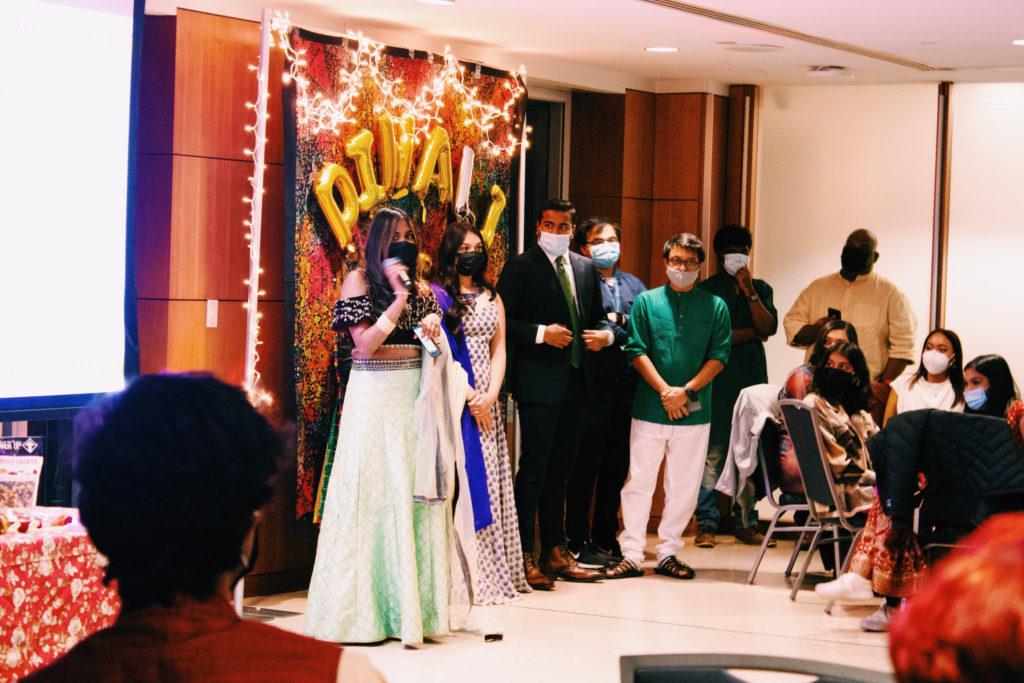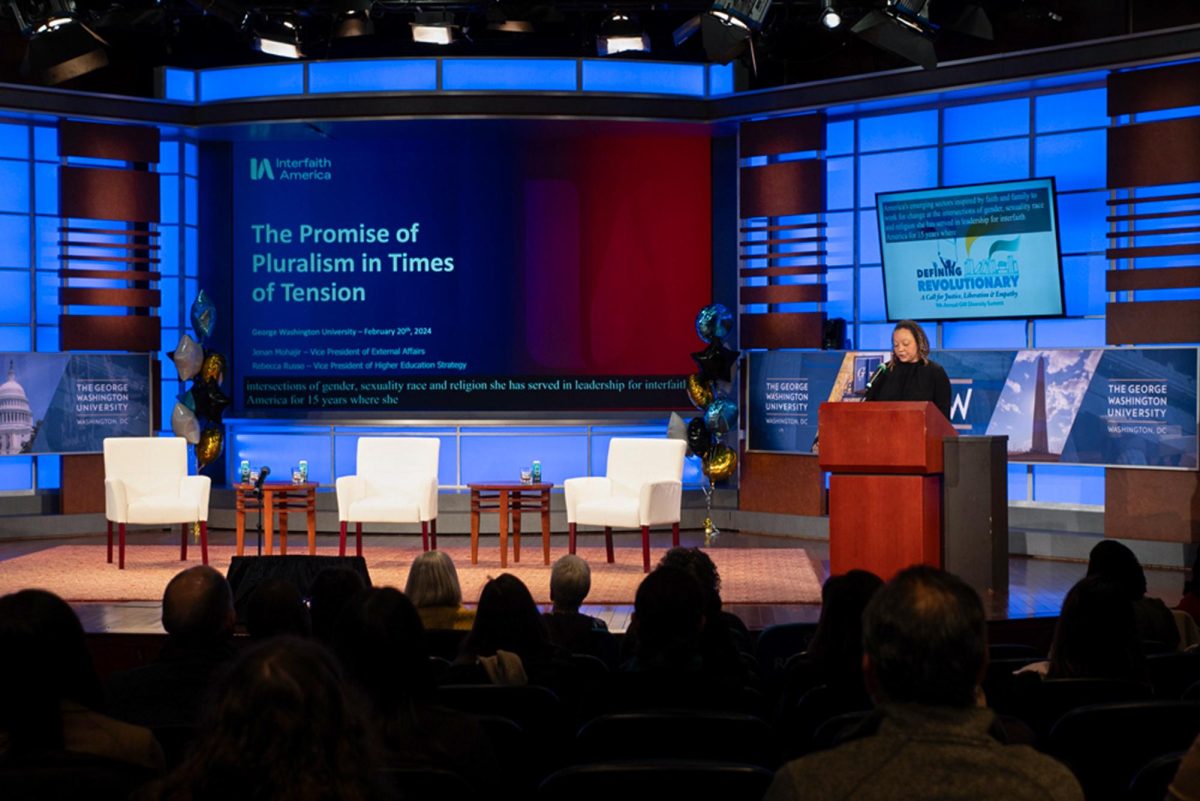About 130 students gathered in the city view room of the Elliott School of International Affairs to celebrate Diwali last Saturday with dancing, food and Hindu traditions.
The Hindu Student Association partnered with GW Desis to host the event in celebration of the five-day festival, during which Hindus light lamps to honor the triumph of good over evil. Student leaders said the day brought students together if they could not be with their families, allowing them to meet other members of the Hindu community at GW and celebrate the holiday.
Nikhila Archakam, the president of HSA, said students could receive henna tattoos and paint diyas – clay oil lamps – at the event, which also included food from Taj of India and dance performances from GW Balance, GW Fuego, GW Bhangra and GW Naach. She said the event was especially valuable because students could physically meet one another and celebrate as a community after hosting events virtually last year.
“Diwali is a huge celebration for Hindus,” she said. “It marks the new year, so Diwali is like the new year for us and it’s usually celebrated with a lot of people. We do fireworks, there’s a ton of lights around, and it’s just a way to bring everyone closer together.”
Archakam said she struggled to plan the event this year because the HSA e-board was accustomed to planning events online and leaders had to purchase new inventory to compensate for resources that were missing or lost when they returned to campus. She said the Org Help Finance Team, a drop-in support office for student organization finances, helped the group plan the in-person event.
“I tried learning on my own online, and it was really difficult so I went in person,” she said. “They’re all really helpful, and no one looked down on me for not knowing anything, but they all just supported me and helped me.”
She said students of Indian and South Asian heritage and international students who are celebrating Diwali away from home could especially benefit from the event and come together with other Hindu students to celebrate.
“I’ve spoken about this in the past, but being someone of Indian or South Asian heritage away from home, it’s already kind of sad that we’re not able to celebrate with our families, and that even during COVID it was really sad because we couldn’t celebrate with any other people,” she said. “So being able to celebrate with a lot of people and have a full blown party was a great opportunity and, like, a great experience that everyone really enjoyed.”
Rohan Joy Mathew, the president of GW Desis, a graduate student organization that helps transition international South Asian students to campus and the U.S., said the Diwali celebration was Desis’ first in-person event in nearly two years after the organization shut down all operations during the pandemic.
“We do cultural events, we do talks based on especially immigration talks and all those things,” he said. “This organization started in 2013, but during the pandemic nobody could take responsibility, and we had to take it upon ourselves to restart it.”
He said the organization set up decorations at the event and introduced their organization to attendees to spread awareness after relaunching at the start of this academic year. Joy Matthew said the Diwali celebration was an opportunity for new leaders within the organization to learn how to plan events for the future.
“For two years, technically, nobody did any sort of meet and greet events,” he said. “Nobody did because everybody was confined to their own houses pretty much and this opened up the space for people to come in as needed.”
Puneeth Geddalahalli Hanumantharaya, the financial officer for GW Desis, said student leaders wanted to host events so people would know that Desis was still “alive” after being inactive for two years because of the COVID-19 pandemic.
“Then, the next immediate thing was to organize events and then try to tell everybody that the organization is alive, not dead and pretty much do whatever the organization used to do prior to COVID,” he said. “So from there on, the next immediate thing would be Diwali because it’s the most celebrated festival for South Asia.”
Geddalahalli Hanumantharaya said the Diwali celebration allowed students to come together and celebrate their shared experiences and branch out to meet new people.
“It is really good to socialize with your fellow students, understand their struggles, because somewhere we all share that struggle of coming from new places and then gather as a University and study together,” he said.








